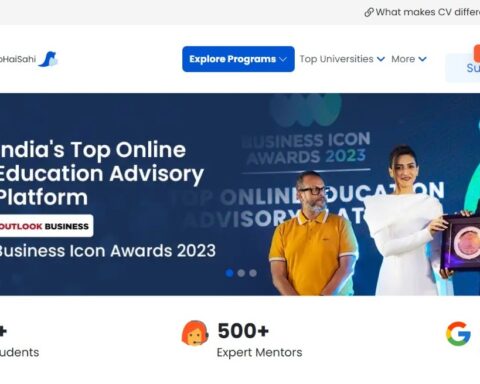India’s Edtech sector to become a $30 billion industry in the next 10 years on the backing of growing demand and strengthening business models, according to RBSA Advisor, a leading transaction advisory firm specializing in valuation, investment banking, and transaction services. RBSA Advisors in its latest report, ‘Unleashing EdTech Potential in India’ estimates the current industry size between $2.75 – 3.00 Bn

Vigorous growth will drive the growth in the K-12 Edtech opportunity in user base, with Edtech users growing proportionately faster than the overall student base. Online education offerings for Classes 1 to 12 are projected to increase 6.3X by 2022 from the base of 2019, creating a $1.7 billion market, while the post-K12 market will grow 3.7X to touch $1.8 billion. We expect this growth to be driven by K12, higher education, test preparation, and upskilling categories. The New Education Policy 2020 offers multiple exit options and certification within the undergraduate education period and an academic bank of credit will be established for digitally storing academic credits earned from different institutes so that these can be transferred and counted towards the final degree earned.
In fact, India has emerged to be among the top three countries in the world after China and the USA to get venture capital funding in edtech sector. Global EdTech started the last decade with $500 million of venture capital invested in 2010 and finished 32x higher at $16.1B in 2020, nearly 2x the previous investment record in 2018. US and China continuing to grow, along with the spectacular rise of India as an EdTech powerhouse. India’s Edutech sector has attracted private equity investments of around $4 billion in the last five years which has led to the emergence of global edtech leaders like Byju’s commanding a valuation of US$ 15Bn. The market has also witnessed the consolidation of the sector with aggressive M&A activities leading to the market leaders like Byju’s, Unacademy, UpGrad, Vedantu, etc.
‘Lockdown because of the pandemic has resulted in a massive increase in the private equity investments in the Edtech sector because of increasing inclination of students and parents to opt for getting an education from home through various learning platforms,” Rajeev R. Shah Managing Director & CEO, RBSA Advisors
Fortunately for India, introducing Edtech has coincided with growing internet penetration with the availability of cheaper smartphones and low data prices. This has increased the ease of access to quality education through various learning platforms among Indian students across the nation. Further, lockdown imposed because of Covid–19 has increased the demand for Edtech products multifold. It has broadened the landscape of Edtech products from supplemental education platforms, test preparation, and vocational training apps to B2B products helping the conventional educational infrastructure to go online. The pandemic has been a shot in the arm of edtech and we strongly believe that the current Edtech product landscape will keep on developing with new products focusing on providing a more customized and personalized learning experience for users.
According to the report, India’s education system is multifold and one of the largest in the world with more than 271 million students enrolled in more than 1.5 million schools and around 37.2 million undergraduate and postgraduate students enrolled in over 39000 colleges across India. Formal education in India includes primary and secondary school education, graduation, post-graduation, and diploma courses.
Also read:






